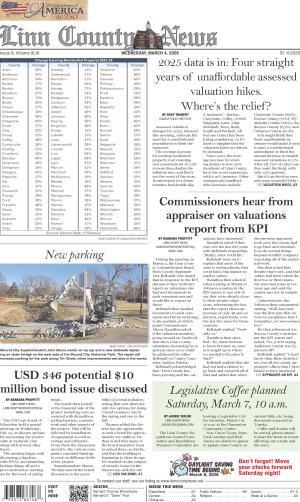Action Follows Thorough Evaluation of Available Safety, Effectiveness, and Manufacturing Quality Information by FDA Career Scientists, Input from Independent Experts
Today, the U.S. Food and Drug Administration issued an emergency use authorization (EUA) for the second vaccine for the prevention of coronavirus disease 2019 (COVID-19) caused by severe acute respiratory syndrome coronavirus 2 (SARS-CoV-2). The emergency use authorization allows the Moderna COVID-19 Vaccine to be distributed in the U.S. for use in individuals 18 years of age and older.
“With the availability of two vaccines now for the prevention of COVID-19, the FDA has taken another crucial step in the fight against this global pandemic that is causing vast numbers of hospitalizations and deaths in the United States each day,” said FDA Commissioner Stephen M. Hahn, M.D. “Through the FDA’s open and transparent scientific review process, two COVID-19 vaccines have been authorized in an expedited timeframe while adhering to the rigorous standards for safety, effectiveness, and manufacturing quality needed to support emergency use authorization that the American people have come to expect from the FDA. These standards and our review process, which are the same we have used in reviewing the first COVID-19 vaccine and intend to use for any other COVID-19 vaccines, included input from independent scientific and public health experts as well as a thorough analysis of the data by the agency’s career staff.”
The FDA has determined that the Moderna COVID-19 Vaccine has met the statutory criteria for issuance of an EUA. The totality of the available data provides clear evidence that the Moderna COVID-19 Vaccine may be effective in preventing COVID-19. The data also show that the known and potential benefits outweigh the known and potential risks—supporting the company’s request for the vaccine’s use in people 18 years of age and older. In making this determination, the FDA can assure the public and medical community that it has conducted a thorough evaluation of the available safety, effectiveness, and manufacturing quality information.
The Moderna COVID-19 Vaccine contains messenger RNA (mRNA), which is genetic material. The vaccine contains a small piece of the SARS-CoV-2 virus’s mRNA that instructs cells in the body to make the virus’s distinctive “spike” protein. After a person receives this vaccine, their body produces copies of the spike protein, which does not cause disease, but triggers the immune system to learn to react defensively, producing an immune response against SARS-CoV-2.
“Guided by science and data, the agency’s career staff determined that the vaccine’s known and potential benefits clearly outweigh its known and potential risks, and although not an FDA approval, the FDA’s expectations described in our June and October guidance documents have been met,” said Peter Marks, M.D., Ph.D., Director of the FDA’s Center for Biologics Evaluation and Research. “Today’s authorization demonstrates our steadfast commitment to the health of the American people, with the assurance that our scientific standards and the integrity of our review process have been maintained. This achievement is yet another testament to the dedication of FDA’s career scientists and physicians, who have been working urgently to conduct comprehensive and rigorous evaluations of the data submitted for vaccines to prevent COVID-19.”
FDA Evaluation of Available Safety Data
Moderna COVID-19 Vaccine is administered as a series of two doses, one month apart. The available safety data to support the EUA include an analysis of 30,351 participants enrolled in an ongoing randomized, placebo-controlled study conducted in the U.S. These participants, 15,185 of whom received the vaccine and 15,166 of whom received saline placebo, were followed for a median of more than two months after receiving the second dose. The most commonly reported side effects, which typically lasted several days, were pain at the injection site, tiredness, headache, muscle pain, chills, joint pain, swollen lymph nodes in the same arm as the injection, nausea and vomiting, and fever. Of note, more people experienced these side effects after the second dose than after the first dose, so it is important for vaccination providers and recipients to expect that there may be some side effects after either dose, but even more so after the second dose.
It is mandatory for ModernaTX, Inc. and vaccination providers to report the following to the Vaccine Adverse Event Reporting System (VAERS) for Moderna COVID-19 Vaccine: all vaccine administration errors, serious adverse events, cases of Multisystem Inflammatory Syndrome (MIS), and cases of COVID-19 that result in hospitalization or death.
FDA Evaluation of Available Effectiveness Data
The effectiveness data to support the EUA include an analysis of 28,207 participants in the ongoing randomized, placebo-controlled U.S. study who did not have evidence of SARS-CoV-2 infection prior to the first dose of vaccine. Among these participants, 14,134 received the vaccine and 14,073 received placebo. The vaccine was 94.1% effective in preventing COVID-19 disease among these clinical trial participants with 11 cases of COVID-19 in the vaccine group and 185 in the placebo group. At the time of the analysis of these 196 COVID-19 cases, none in the vaccine group and 30 in the placebo group were classified as severe. After the analysis of these 196 cases was completed, one severe case in the vaccine group was identified and is awaiting confirmation. At this time, data are not available to determine how long the vaccine will provide protection, nor is there evidence that the vaccine prevents transmission of SARS-CoV-2 from person to person.
The EUA Process
On the basis of the determination by the Secretary of the Department of Health and Human Services on Feb. 4, 2020, that there is a public health emergency that has a significant potential to affect national security or the health and security of United States citizens living abroad, and issued declarations that circumstances exist justifying the authorization of emergency use of unapproved products, the FDA may issue an EUA to allow unapproved medical products or unapproved uses of approved medical products to be used in an emergency to diagnose, treat, or prevent COVID-19 when there are no adequate, approved, and available alternatives.
The issuance of an EUA is different than an FDA approval (licensure) of a vaccine, in that a vaccine available under an EUA is not approved. In determining whether to issue an EUA for a product, the FDA evaluates the available evidence to determine whether the product may be effective and also assesses any known or potential risks and any known or potential benefits. If the product meets the effectiveness standard and the benefit-risk assessment is favorable, the product is made available during the emergency. Once a manufacturer submits an EUA request for a COVID-19 vaccine to the FDA, the agency then evaluates the request and determines whether the relevant statutory criteria are met, taking into account the totality of the scientific evidence about the vaccine that is available to the FDA.
NEWS
Commissioners hear from appraiser on valuations report from KPI

During the meeting on March 2, the Linn County Commissioners heard from County Appraiser Lisa Kellstadt who stated that in response to the KPI (Kansas Policy Institute) report on valuations she had sent documents to each commissioner and would like to report on those. Kellstadt... [More]
2025 data is in: Four straight years of unaffordable assessed valuation hikes. Where’s the relief?

Assessed valuation changes for 2025, released this morning, reiterate the need for a constitutional amendment to limit the increases. The average increase for existing residential property (not counting new construction) of 5.9% is more than double the inflation rate, and that’s... [More]
USD 346 potential $10 million bond issue discussed

The USD 346 Board of Education held a special meeting on Wednesday, Feb. 25, to discuss options for renovating the science suite at Jayhawk Linn along with several other items. The meeting began with discussing a timeline, with HVAC and plumbing kicking things off and a pre-construction... [More]
More News
- SPECIAL - PUBLIC NOTICE LINN COUNTY, KANSAS PLANNING & ZONING BOARD
- Pleasanton contracts with engineer for water plant roof
- La Cygne Council approves property purchase
- Commissioners discuss future of economic development
- Linn County Planning Commission approves Thies motorcycle CUP
- Governor Kelly issues state of disaster emergency for wildland fires
- Parker City Council awards roofing bid
- Commissioners receive update on large-scale culvert project
SPORTS
Pleasanton boys advance in Sub-State tournament, girls end season

The Pleasanton boys’ and girls’ basketball teams began their Sub-State tournament action this past week. Pleasanton is in the Madison 1A Div. 1 Sub-State and the boys entered the tournament as the 1 seed with a 20-1 record while the girls were the 11 seed with an... [More]
Jayhawk wrestling has four wrestlers place in the top four at State

The Jayhawk boys’ and girls’ wrestling teams traveled to Hays on Feb. 27-28 to compete in the 3-1A State tournament. The Hawks brought a total of 11 wrestlers to the event, six girls and five boys. The boys’ team earned three State medals while the girls’... [More]
Prairie View boys’ wrestling sends two to State

The Prairie View boys’ wrestling team traveled to Paola on Feb. 21 to compete in a 4A Regional to determine who would make the 4A State tournament in Salina on Feb. 27-28. The Buffalos took eight wrestlers and two emerged as qualifiers for the State tournament, Bentlee... [More]
More Sports
- Jayhawk boys’ wrestling sends five to State and sets milestones
- Prairie View basketball ends regular season with wins in the final week
- Pleasanton boys’ basketball finishes regular season as Three Rivers champions
- Jayhawk girls’ wrestling taking six wrestlers to State
- Pleasanton basketball faces off against Southeast and Erie
- Prairie View girls’ wrestling qualify five for State
- Prairie View boys/girls’ wrestling hosts Jayhawk in a dual
- Pleasanton basketball travels to Northeast and hosts Yates Center during Courtwarming week
COMMUNITY
Legislative Coffee planned Saturday, March 7, 10 a.m.

The Linn County Republican Central Committee and Republican Women’s Committee are hosting a Legislative Coffee Saturday, March 7 at 10 a.m. at the Pleasanton Community Center. Sen. Caryn Tyson, Reps. Fred Gardner and Rick James are slated to appear to update Linn County... [More]
Jayhawk Linn High School senior awarded prestigious Rudd Foundation Scholarship

Jayhawk Linn High School senior Eleanor Vaughn, daughter of Lucas and Megan Vaughn, was honored in a surprise ceremony attended by students, staff and her family as the recipient of the highly competitive Rudd Foundation Scholarship. Vaughn, who plans to attend Kansas State... [More]
PV FFA receives KAAE award

According to their website, one of the goals of the Kansas Association of Agricultural Educators, or KAAE, is to promote and improve the teaching of agriculture in secondary schools and where courses in technical agriculture constitute the principal function, maintain and improve... [More]
More Community
- Mound City cowboy wins Big in Texas
- Washburn University Music & Theatre Department to host Piano Day Feb. 14
- Markley rural Mound City property named as Century Farm
- Carbon Monoxide and what you need to know
- The Power of Hobbies: Why staying engaged matters as we age
- Heartland REC expands Future Foundations Scholarship Program to 12 awards
- Call for Entries: Bourbon County Arts Council Fine Art Exhibit 2026
- Tips for a safe New Year’s Eve


